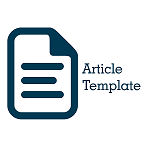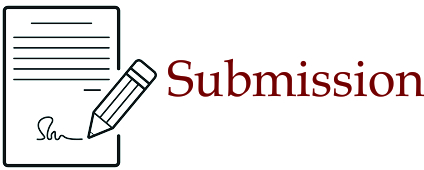Perkembangan Madrasah dan Tingkat Kepercayaan Publik
Abstract
Madrasah developed every decade for Indonesia society. The development of Madrasah runned along with the need of family household. Madrasah sustained the quality as well as provided more deep practices and extra-curricular to support prominent programs. This research describes deeply of madrasah development and society or public trust sustainably to madrasah. This study is descriptive qualitative research designed by naturalistic inquiry to naturalistic phenomena of Islamic education. The data collecting techniques are observation and interview by which data analytical inductive analyses, creative synthesis and holistic perspective to education phenomena and stakeholders. The result of the study shows that in modern and industrial era 4.0, stakeholders respond to what society need to industrial world rather than just believing the truth of self-sense to religious touches. The quality and public trust, on education in Madrasah, increase. Madrasah strives to improve the significant plays a role of state Madrasah as a model and as a controller of the quality of Madrasah taught. Developing educational programs and improving the ability of madrasahs to bring the role as public schools based on Islamic characteristics creates graduates’ quality as social expectations.
Keywords
Full Text:
PDFReferences
Asadullah M.N ., M. (2018). Madrasah for girls and private school for boys? The determinan of school ytpe choice in ruraland Indoensia. International Journal of Education Development, 62(September, 2018), 96-111.
Delavande. (2012). Stereotypes and Madrassas: Experimental evidence from Pakistan. Journal of Economic Behaviour and Organization. retrived from http/jebo.2015.03.020, 246-267.
Farisi, Y. A. (2021). Improving The Quality of Human Resources In Madrasah. Managere: Indonesian Journal of Educational, vol. 3, 75–83.
Handayani, &. H. (2020). Manajemen Pembiayaan Pendidikan Di SMA Negeri Pasca Desentralisasi Pendidikan. Jurnal Administrasi Dan Manajemen Pendidikan, 332– 341.
Haqqani, H. (2014). Madrassas: Knowledge or the Shade of Swords. Carnegie Endowment for International Peace, 1509.
Hasbullah. (2015). Education policy: In perspective of theory, application, and education objective condition in Indonesia. Jakarta: Raja Grafindo Persada.
Hidayat, A. (2016). Theory and practice of school/Madrasah management in Indonesia. Jakarta: Prenada Media Grup.
Hidayati, F. W. (2019). Madrasa and social history of islamic education. Nur-El Islam Jurnal Pendidikan dan Sosial Keagamaan, 1-14.
Jabbar, M. N. (2019). Quality Management as a Strategic Tool to Enhance The Relationship Between Leaders’ Behavior and Lecturers’ Job Satisfaction. International Journal of Higher Education, 36–46.
Jaelani, T. A. (1993). Improvement of educational quality and religious school development . Jakarta: Dermaga Press.
Kuswanto, &. I. (2021). Effect of service quality and motivation on the consumption behavior of students in the academic services. International Journal of Evaluation and Research in Education, 10(1, 86–96.
Lewis, G. D. (2019). All Hands on Deck in Curriculum and Instructional Processes. . World Journal of Education , 9(5), 83–99.
M. B., H. M. (2014). Qualitative Data Analysis: A Methods Source Book. California: Sage Publications, Inc.
Maghfuri, A. (2019). The dynamic of Pesantren-based madrasah curriculum in the 20th Century (Historical analysis of Madrasah curriculum implementation). Tadbir, 1-16.
Nasri, N. M. (2020). Self-directed learning curriculum: Students’ perspectives of university learning experiences. International Journal on Education, 227–251.
Nata, A. &. (2020). Making Islamic University and Madrasah as Society’s Primary Choice. Al-Hayat: Journal of Islamic Education (AIJIE), 210–222.
Pratama, Y. A. (2019). Integration of Madrasah education in national education system (A policy study of madrasah education in Indonesia. Al- Tadzkiyyah: Jurnal Pendidikan Islam, 95-109.
Pusvitasari, R. (2021). Human Resource Management in Improving The Quality of Education. Al-Tanzim: Jurnal Manajemen Pendidikan Islam, 5 (2), 125–135. .
Rohman, F. (2017). Islamic education: Reveals the history of madrasa development until Nizamiyah era. Surabaya: Nizhamiyah, VII(2), 35-60.
Snyder, H. (2019). Literature review as a research methodology: An overview and guidelines. Journal of Business Research, , 104, 333-339.
Sulasmi, E. (2020). The development strategy of human resources management in children's social welfare institution (LKSA) . Bengkulu: LKSA AL-Mubaraak orphanage .
Supa'at. (2011). Transformation of Madrasah in National Education System. Jurnal Penelitian dan Evaluasi Pendidikan, 155-186.
Supariyanto, D. (2015). Integrated quality management (MMT)-based quality Madrasah. Modeling. stiknualhikmah.ac.id, 70-84.
Suprayogo, I. (1999). Reformation of Indonesian education vision . Malang: STAIN Press.
Syamsurizal. (2019). Peran Kepemimpinan Dan Penerapan Manajemen Perubahan Dalam Peningkataan Daya Saing Organisasi Perguruan Tinggi. Jurnal Administrasi Bisnis Internasional, 51-67.
Wang, T. (2019). Competence for Students’ Future: Curriculum Change and Policy Redesign in China. . ECNU Review of Education, 234–245.
Yahya, M. D. (2014). Madrasah position in national education system in Regional Autonomy Era. Jakarta: Khazanah, 1.
DOI: https://doi.org/10.18860/jmpi.v1i1.19749
Refbacks
Copyright (c) 2023 As'ari As'ari

This work is licensed under a Creative Commons Attribution-ShareAlike 4.0 International License.
Fakultas Ilmu Tarbiyah dan Keguruan
Universitas Islam Negeri Maulana Malik Ibrahim Malang
Jalan Gajayana 50 Malang 65144, Jawa Timur, Indonesia
Telp/Fax: +62341-552398 Email: jmpi@uin-malang.ac.id

This work is licensed under a Creative Commons Attribution-ShareAlike 4.0 International License.
INDEXED BY:
















